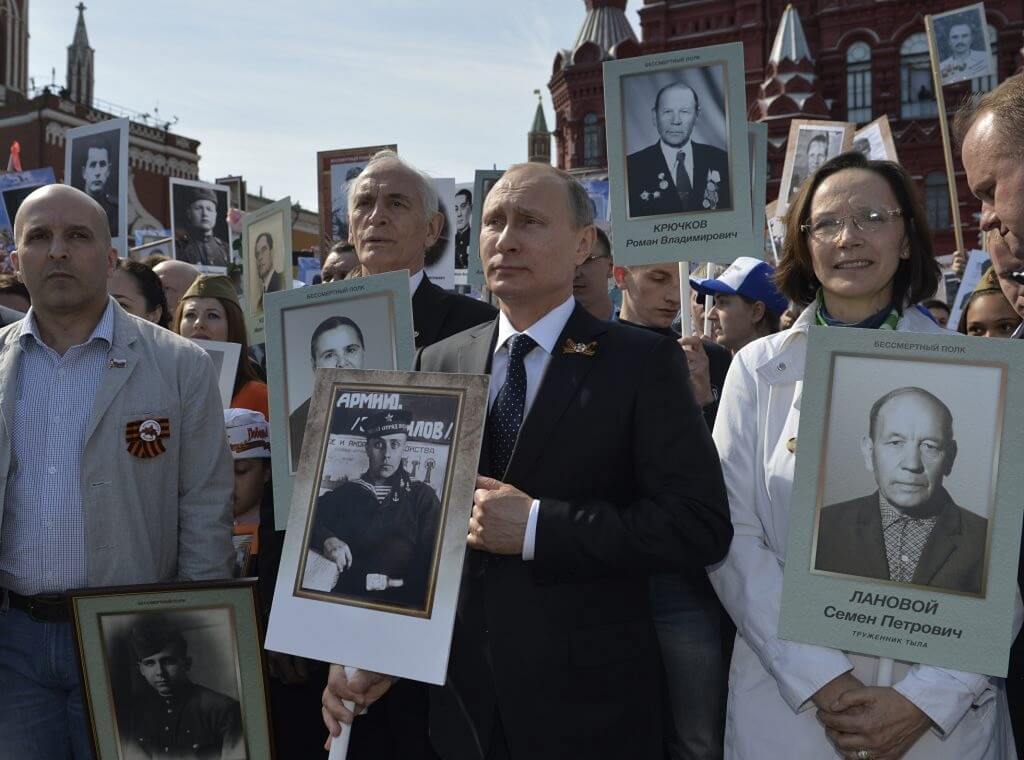Marco Levytsky, Editorial Writer.
In last week’s issue we reported on a webinar (seminar held on the internet) “Is Ukraine’s negotiating position changing?”, sponsored by the Atlantic Council and United States Institute of Peace. The participants included: Svyatoslav Vakarchuk, founder of the reformist Holos political party and member of parliament; Dmytro Kuleba, Minister of Foreign Affairs for Ukraine; Adrian Karatnycky, Senior Fellow, Eurasia Center, Atlantic Council and Managing Partner, Myrmidon Group LLC; former U.S. Ambassador to Ukraine (2006-2009), former Acting Ambassador to Ukraine (June, 2019-January 2020), and currently Vice President, Strategic Stability and Security, United States Institute of Peace, William B. Taylor; and former U.S. Ambassador to Ukraine (2003-2006), currently, Director, Eurasia Center, Atlantic Council, John Herbst. The webinar, which was moderated by Orysia Lutsevych, Research fellow and manager, Ukraine Forum, Russia and Eurasia Programme, Chatham House, was viewed by 163 participants.
There were a number of interesting points that came out of this discussion, but one of the more contentious ones was the theory floated by the three diplomats – Kuleba, Taylor and Herbst, that Russian President Vladimir Putin is likely to pull out of Ukraine and is looking for a face-saving way to do this. As Taylor explained: “This is a loser for them (the Russians) …This does not bring them benefits. It has only brought them pain and costs. The costs are in the form of sanctions. And sanctions hurt.” He later added that “an international peacekeeping force authorized by, but not run by the Security Council” may prove to be the answer. Both Karatnycky and Vakarchuk disagreed, Karatnycky pointing out that Putin doesn’t really have any territorial objectives in Ukraine – he wants Ukraine to disappear altogether as a separate national entity. As he put it, “Mr. Putin has ethno-national pretensions on Ukraine. He isn’t interested in the territory. He is interested in saying that the people of Ukraine are actually Russian people. So, when we discuss the prospect of peace, what we really have to deal with is the reality that Mr. Putin does not want the existence of either the Ukrainian people, nor the Ukrainian state.”
One is reminded of the famous line Putin fed then-U.S. President George W. Bush back in 2008: “You have to understand, George. Ukraine is not even a country”. And this was not the first, nor the last, time Putin ever made such a statement. As Peter Dickinson, editor of the Atlantic Council’s UkraineAlert blog put it in an April 23 article: “Time and again, over the past year, the Russian leader has underlined his contempt for Ukrainian independence and questioned Ukraine’s right to statehood. During his annual press marathon in December 2019, he referred to southeastern Ukraine as ancestral Russian lands that had been inexplicably and erroneously handed over to Ukraine by the Bolsheviks. In a February 2020 interview with Russian state news agency TASS, he reiterated his oft-stated belief that Russians and Ukrainians are actually “one people” and claimed dark geopolitical forces were at work to divide Ukraine from Russia. These are not the words of a man preparing to make peace and build constructive neighborly relations.”
Very true. While Putin may tolerate nominal Ukrainian independence as long as the country is run by a puppet of his like Viktor Yanukovych, he cannot stomach a westward-leaning democratic Ukraine. And what he finds the most dangerous is the “Ukrainian virus” – democracy. Should this virus ever spread to Russia, it would threaten his dictatorial kleptocracy.
His objective, therefore, is to create enough disruption to prevent Ukraine from becoming a prosperous, truly independent and functioning democratic state. To that end, the only peace he will agree to is one that installs a Russian-controlled fifth column – a cancer if you wish – inside Ukraine that will effectively block any European integration and ensure a failed state that remains a puppet of Moscow. And that is the ultimate objective of the “special status” for Donbas that he is proposing and that, unfortunately has gained some support among European nations eager to get back to business as always with the Russian Federation.
But what is revealing in the statements made by the three diplomats at the webinar is the fact that sanctions are beginning to hurt the Russian Federation. Moscow has exploited the COVID-19 pandemic to sow discord through an ongoing campaign of disinformation in the West and present itself as a benevolent state providing assistance labelled “From Russia With Love” – all in the hope of driving wedges within the European Union and hoping to gain some relief from the sanctions. But one can easily see through this charade. As the Italian newspaper La Stampa noted, the Russian aid had little practical value and was more like a geopolitical opportunity for Putin. It went so far as to brand 80% of the delivery “useless”.
All of which means there can be no easing of sanctions against the Russian Federation. If anything, sanctions should be increased. The Russian Federation must be made to suffer enough pain that Putin’s hold on power becomes threatened. Even a nation as docile as Russia can only stand so much – as the last tsar of the Romanov family, Nicholas II, found out the hard way. And what is Putin, if not a 21st century tsar?
Share on Social Media




































